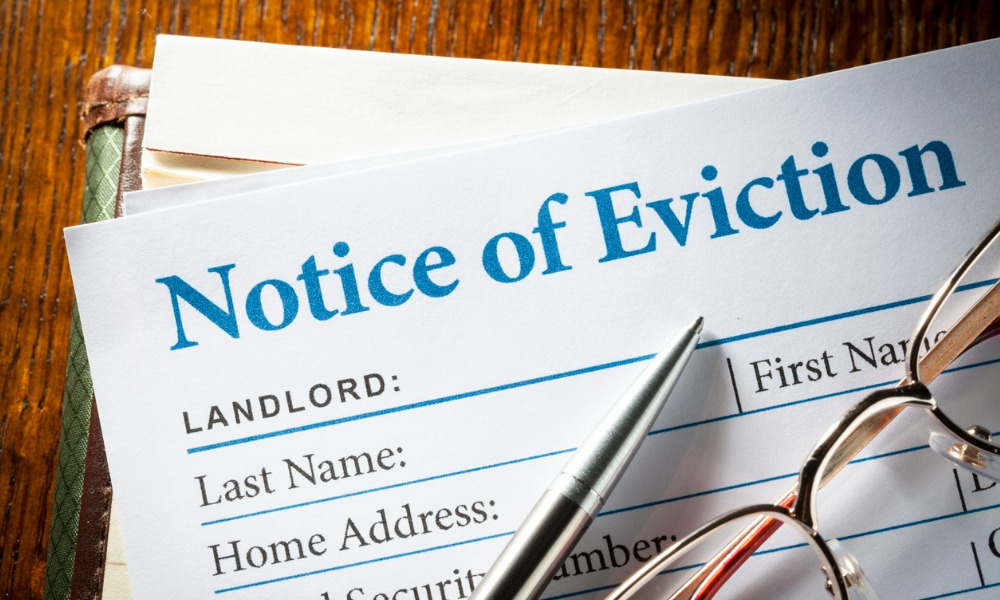
Rental arrears were due to assignee's delinquency or errors in billing, court said

The Ontario Superior Court of Justice ruled that a commercial tenant cannot be evicted from the leased premises for the failure of its landlord’s assignee to prove default in payment obligations under the lease contract. In Up In Frames v. NYX Yonge Inc., 2022 ONSC 4795, a commercial lease was entered between Maria Messina as landlord and the applicant tenant. The applicant runs a retail business from the leased premises located at 3200 Yonge Street in Toronto. The lease will expire in 2023 with a potential five-year extension.
In May 2020, NYX Capital Corp. acquired the building containing the premises. The respondent, an affiliate of NYX Capital Corp., was assigned the landlord’s interest in the lease as part of the acquisition. In February 2022, the respondent sent a default notice to the applicant and required payment of $45,057.19 in arrears within 30 days. A month later, the respondent delivered a lease termination notice.
The applicant then sought an injunction with the Superior Court. It argued that it was not in default of the lease, and the respondent fabricated supposed default instances to evict the applicant from the premises.
The Superior Court nullified the default notice. Thus, the respondent is forbidden from terminating the lease or re-entering the premises without a court order.
The court determined that although the applicant owed some of the rental arrears, those amounts were the result of the respondent’s delinquency or billing errors. For example, part of the so-called arrears was an unpaid water bill from the previous year in the amount of $240.41 that the respondent had never forwarded to the applicant.
“A tenant cannot be expected to pay or know about a bill it did not receive, and that its failure to have done so cannot be an instance of default leading to termination of the tenancy,” Justice Edward Morgan wrote. “In any event, the applicant has tendered a cheque in full payment of this water bill.”
The second default item discovered by the respondent was supposedly unpaid property tax of $40,773.43. In its default notice, the respondent claimed that the amount was outstanding and had accumulated since its property acquisition. The court disagreed.
By reading the lease terms, the court found that the applicant has not been delinquent in paying realty taxes. Instead, it has been paying those taxes as part of its monthly “semi-gross” rental payments − all of which have been paid promptly and up to date.
“The only amount that the applicant is responsible for that is over and above its monthly rental payments is any escalation in realty taxes over that payable the first year of its lease,” Justice Morgan wrote. “Moreover, the lease specifically provides that such escalation amounts only become payable by the applicant when and if it is invoiced for the amount as part of the respondent’s annual reconciliation of expenses.”
The court noted that the amount of $40,773.43 claimed by the respondent represented the entire realty tax bill for the property for the relevant time, not the escalation in realty taxes over and above the first year of the tenancy. Therefore, the amount the applicant owed on escalated realty taxes was, at most, $4,931.95, the difference between 2020 and 2021 realty taxes.
“Like the amount of the water bill, the applicant had never paid this because it was never billed for it,” Justice Morgan wrote. “And also like the water bill, the applicant has now tendered a cheque in full payment of this tax escalation.”
The third component of the supposed arrears in rent discovered by the respondent was one month’s unpaid basic rent of $4,520. These arrears date back to May 2020, when the respondent acquired the property in issue.
Upon investigation, the court found that the applicant had sent a post-dated rent cheque for May 2020 to the previous landlord, who then forwarded this cheque to the respondent.
“A tenant cannot, without some notification or explanation by the landlord, be expected to give a second rent cheque for a month when it has already delivered a rent cheque for that month,” Justice Morgan wrote. “The applicant’s failure to have paid basic rent for May 2020 lies entirely with the respondent as a clerical error in not depositing the cheque.”
The court also found that, like the water bill and the tax escalation, the applicant has now tendered a cheque in full payment of the May 2020 rent.
In conclusion, the court agreed with the applicant that there are no instances of default in rent to support the default notice, and the applicant has now tendered the proper amounts.